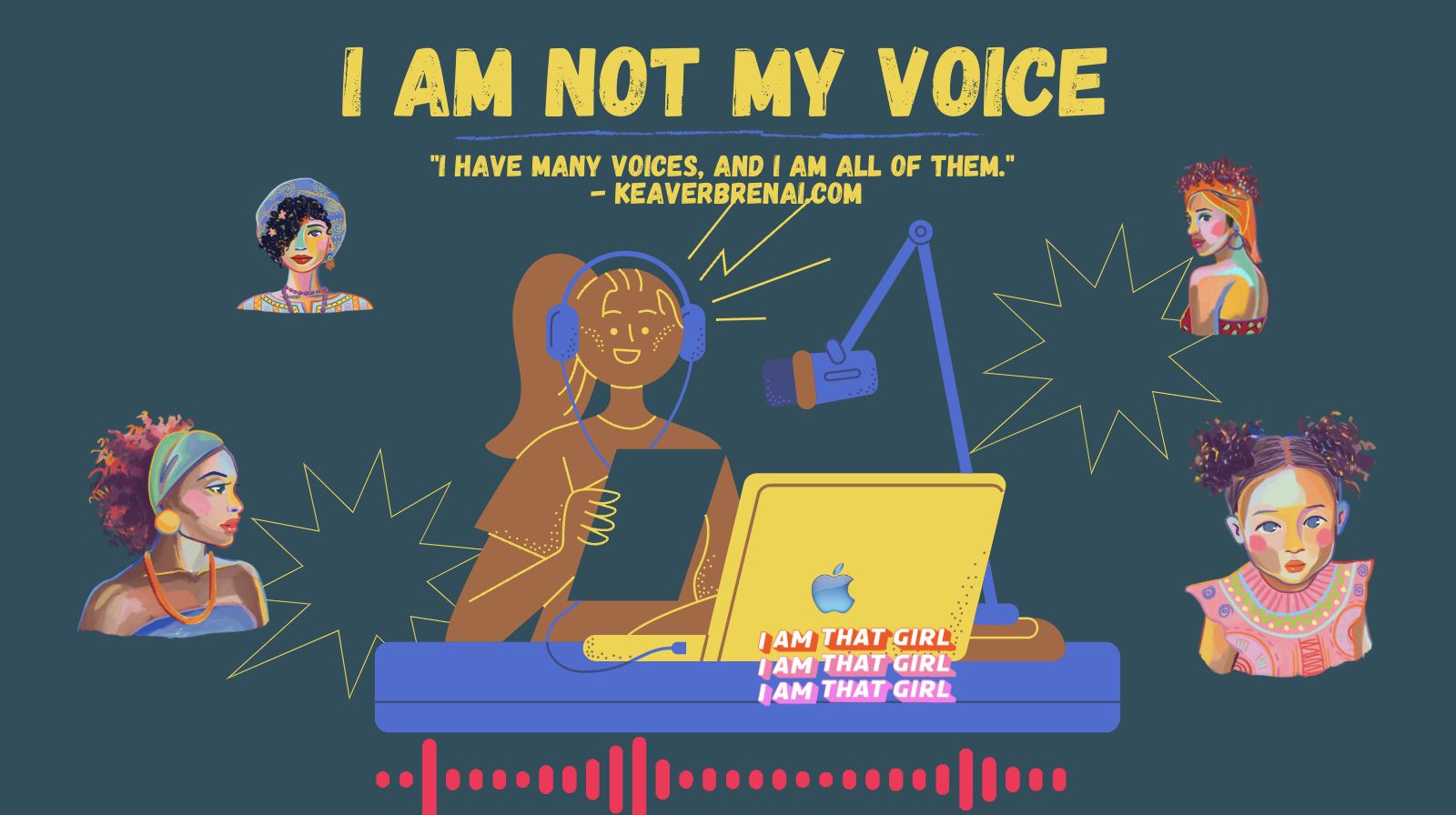“I have many voices, and I am all of them.” – Keaver Brenai
Have you ever been on the phone or listened to a podcast and immediately envisioned the persona of the individual speaking? We are judged by the sound of our voices. Heavy or light. Loud or soft. Young or old. Proper or relaxed. National or regional. Comedic or deadpan. Who we are at ‘hello,’ is usually not who we are during our read or various reads in a recording session or a conversation.
Conditions create preconceived notions of who we listen to that our life experiences have created by conceptualizing our reality. Our bias comes from social conditioning and environmental exposure. All these things have a formula that can be followed to convey specific tones and accents in our speaking to give a perception of identity.
How often are you right or wrong about the appearance and identity of the person you are listening to for the first time but cannot see? Did you pick up an accent? Did you presume an age? Even assuming the person’s physical appearance? The script direction can take us through twists and turns in conversation, emphasizing words or throwing away phrases, but is it true that the voice can tell strangers about our appearance and how we are feeling mentally? Considering these experiences, can you find truth in the ‘judgment’ just based on your observations within yourself?
The science of language leaves no doubt that a person’s origin can be traced by their choice in dictation. Speech study and therapy hold the foundations for guiding an individual through exercising proper diction to drop or emphasize an accent in all languages. As a voice-over artist, these skills are most valuable in making one marketable in fitting any role. Taking the time to practice a read to find the best tone and inflection for the target audience is what gets that gig.
Singing is a talent that also exercises inflection and tone. It is often observed that singing also makes accents disappear as musical clefs and octaves make vowels stretch so that consonants are lost. Ironically, this neutral projection of speech is commonly perceived as sounding American.
As a voice-over actor, I strive for that same stretching in consonants to maintain clarity and offer a clean recording. This discipline is my baseline in projection for my unique voice. Mastering this skill also allows room for specializing in specific accents and conviction in the annunciation, helping the mind and body to express tone, pitch, and vibrance. This skill conveys emotion; excitement, fear, compassion, passion in love or anger, etc.
Speech is a gateway into a person’s soul, and the voice-over artist is required to know and have empathy and understanding of how one might express phrases and moments. What suits the scenario? What relating conveys the purposeful message?
Like me, you must have one voice and embody all of them. Versatility allows one to show relatability, comprehension of context, range, and more. You discover more about yourself as you master the uniqueness of your voice and how it relates to the world around you.
Subscribe to our blog here for more tips and information.


Recent Comments